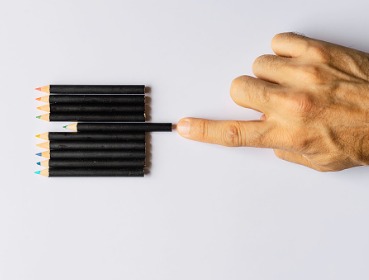#Adulting101 : The 30s checklist
What are some things you should be focusing on in your 30s?
The big “three-zero” can be a huge milestone for most of us as we enter a new decade of our lives with either excitement or trepidation, or both. Most of us are also living longer and healthier lives, which means more opportunities and greater aspirations. In celebration and support of new beginnings, here are some helpful suggestions to help you navigate your 30s with better clarity.
Mental Health
1. Conquer your imposter syndrome
Imposter syndrome may have haunted you all throughout your young adult years — as many as 75% of people have experienced imposter syndrome sometime in their life, where they’ve doubted their accomplishments, or feel like their success was undeserved. Now that you’re in your 30s, it’s time to tackle this head-on. Overcoming imposter syndrome can help you gain confidence in yourself, which makes you more able to take on new challenges and opportunities that would be valuable to your professional and personal life. Imposter syndrome is not something you can overcome overnight, and it may be helpful to speak to a therapist or a mentor for guidance.
2. Establish a healthy work-life balance
As you progress in your career and develop more confidence in setting clearer boundaries around your time, a work-life balance may be something that you can negotiate with better clarity for yourself.
A healthy work-life balance can look like finding a balance between time and energy spent on work and your personal life outside of work. What it looks like will be different from person to person depending on your values and priorities, but generally it means that you have time and energy outside of work for things that are meaningful to you, such as family and friends, hobbies, and leisure time.
3. Nurture a support system of family and friends
No man is an island, and as you have gotten older, you may have realised how challenging it is to maintain friendships and relationships as compared to when you were younger. However, it’s worth putting in the time and effort to nurture and strengthen these relationships with your friends and family as they can provide joy and emotional support during good and bad times. As we have learnt from the past two years, loneliness and social isolation are linked to serious health conditions, and so it becomes even more imperative that we make efforts to strengthen our bonds with the people around us.
Physical Health
1. Get quality sleep and nutrition
You might have noticed in your late 20s that your body is not as indestructible as it used to be. The days of pulling all-nighters for an assignment or a project are far behind you, and it takes days to recover from one late night out.
The quality of our sleep and the nutrients that we put in our body have a huge impact on the way we move in the world every single day. Poor sleep and nutrition slows us down, and can make it harder for us to face everyday challenges in our work and personal life. In your 30s, it will be worthwhile to focus on getting 7-9 hours of quality sleep that can help you feel regenerated during the day, and feed your body with the necessary nutrients to maintain your health and energy levels.
See related articles:
● 5 signs that you might be nutrient deficient
● Young people don't get high cholesterol
2. Build and maintain an active lifestyle
Another way to keep yourself in optimal condition is to stay active and exercise regularly. Exercise has numerous benefits such as improving our cardiovascular health, strength and flexibility, sleep, mental health, and even cognitive function.
What exercise works best for you will depend on your individual needs and preferences. For some people it might be doing high-intensity workouts three times a week, while for others it might be taking evening walks every day. The most important thing is staying active and having movement as part of your daily life.
See related articles:
● Your optimum time to exercise, based on your gender
● Here’s why sitting is the new smoking
3. Go for regular health screenings
Early detection of health problems can make a world of difference in treatment and recovery. Health screenings can help identify risk
factors for certain health conditions such as diabetes and hypertension, and thus guide you in making some lifestyle changes to reduce your risk. The specific screenings and tests that are recommended will depend on your personal and family medical history, lifestyle and overall health.
The Health Promotion Board has a subsidised health screening programme for Singapore Citizens called Screen For Life, where you can check which screening tests are recommended for you based on your age and gender. For example, if you are a woman in your 30s, you can go for a cervical cancer screening for $5 or less.
Financial Health
1. Review your insurance coverage
Finances in your 30s may look very different from your 20s. You may have more dependents to care for now, such as your children or retired parents. At the same time, your career may also be in a more stable place, and your earning power has increased significantly since your 20s. As your lifestyle, responsibilities, and needs change, you should review your insurance coverage to make sure that you and your family are adequately covered for unexpected changes or emergencies. Speak to a financial representative who can advise on any potential gaps in your coverage.
2. Invest in your retirement
It’s never too early to start, but your 30s would be a great time to double down on retirement planning. At 30, time is still on your side,
and your money still has a few decades to grow with the power of compound interest. You can also take on more risks in your investments as you would have more time to recover from market downturns. Investing earlier can give you more control over your retirement in the future, as you will have the flexibility to choose when and how you want to retire.
Creating a retirement plan may not be so simple and straightforward, so you may find it helpful to consult a financial representative for professional advice.
See related articles:
● Retirement planning: from investing to enjoying the payout
● The road to a comfortable retirement: what’s your ‘retire-meter’ like?
Everyone’s path is different
In the age of Instagram and LinkedIn, it has become too easy to compare yourself to your peers and to make yourself feel bad if you think that you’re “behind”. Practise self-compassion and remember that not everybody in their 30s are in the same stage of life, or have the same priorities, goals and values as you do.
Let us match you with a qualified financial representative
Our financial representative will answer any questions you may have about our products and planning.








